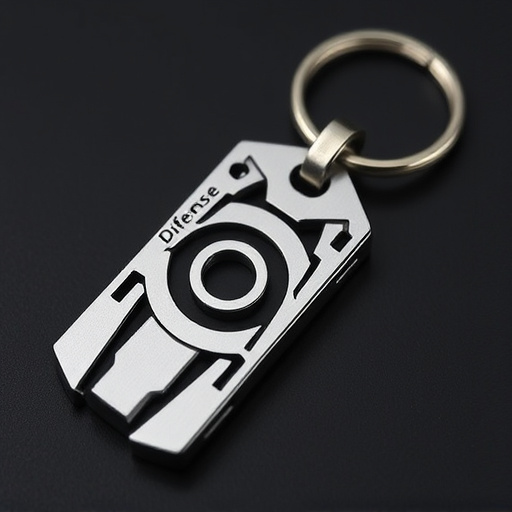Understanding and adhering to state laws regarding military-grade keychain defense tools is essential for personal safety and legal compliance. Varying regulations dictate carry methods, capacity, and permit requirements. "Reasonable fear" assessments balance individual liberties with public safety, while permit processes differ widely by location, affecting legal ownership and carrying rights in diverse settings.
“In today’s world, personal safety is paramount. For those seeking effective self-defense tools, military-grade keychains offer a compact and discreet option. This article guides you through the intricate web of state laws regarding defensive keychain legal carry guidelines. From understanding your rights to navigating reasonable fear interpretations, we explore the do’s and don’ts of carrying these powerful yet legally protected devices. Armed with knowledge, stay prepared and informed about your state’s regulations on military-grade keychain defense tools.”
- Understanding State Laws on Self-Defense Tools
- Military-Grade Keychains: Legal Carry Rights
- Interpreting Reasonable Fear in Weapon Possession
- Permit Requirements for Defensive Keychain Weapons
- Navigating Legal Limits: When and Where to Carry
Understanding State Laws on Self-Defense Tools
Navigating state laws regarding self-defense tools, such as military-grade keychain defense tools, is crucial for individuals looking to protect themselves while adhering to legal boundaries. In many jurisdictions, citizens are permitted to carry specific types of self-defense devices under certain circumstances, with regulations varying widely from state to state. Understanding these guidelines ensures compliance and empowers individuals to make informed decisions regarding their safety.
Military-grade keychain defense tools, known for their compact size and robust functionality, often fall into categories like pepper spray, tasers, or personal stun guns. It’s essential to verify local laws, as some states have restrictions on the type, capacity, and carrying method of these devices. Some may require permits, while others permit open carry or concealed carry with specific licenses. Staying informed about these legal nuances allows responsible citizens to harness the power of self-defense tools effectively while respecting the law.
Military-Grade Keychains: Legal Carry Rights
Military-grade keychains have become popular defense tools for individuals seeking enhanced personal security. These robust devices, often designed with military specifications in mind, offer more than just a convenient way to open locks. They are marketed as reliable tools for self-defense and emergency situations, appealing to those who prioritize preparedness.
In many states, the legal carry rights associated with military-grade keychains are subject to specific regulations. While some areas permit their open carry, others may restrict them to concealed carry permits. It’s crucial to understand local laws, as these tools could be considered more intimidating than typical self-defense items, leading to increased scrutiny by law enforcement.
Interpreting Reasonable Fear in Weapon Possession
When it comes to interpreting “reasonable fear” in weapon possession laws, especially with military-grade keychain defense tools, understanding what constitutes a justified response is paramount. This concept varies across jurisdictions but generally refers to the level of concern or danger an individual perceives that warrants taking protective measures, such as drawing a weapon. It’s not merely about being afraid; it involves assessing an imminent threat to one’s safety or life. Factors like past experiences, current circumstances, and a rational perception of danger play a crucial role in determining if the fear is reasonable.
Military-grade keychain defense tools, designed for personal protection, fall under this interpretation when users employ them based on a genuine and objective sense of impending harm. The legal threshold for reasonable fear ensures that citizens have the right to defend themselves but also prevents reckless use. This balance is essential in maintaining public safety while upholding individual liberties, especially considering the potential consequences of armed encounters in densely populated areas.
Permit Requirements for Defensive Keychain Weapons
When considering a defensive keychain weapon, understanding permit requirements is paramount. Many states have specific laws governing the carry of personal defense tools, and these rules can vary significantly. For example, some states allow for concealed carry of certain self-defense items with a simple permit or even no permit at all, while others mandate more rigorous licensing processes.
Military-grade keychain defense tools, known for their compactness and effectiveness, often fall under the category of “hidden weapons” subject to stringent regulations. To legally carry such devices, individuals typically need to obtain a concealed carry permit (CCP) or similar authorization from their state’s law enforcement agency. This process usually involves background checks, training requirements, and potential interviews, ensuring responsible and informed ownership.
Navigating Legal Limits: When and Where to Carry
Navigating Legal Limits: When and Where to Carry
Understanding the legal boundaries surrounding self-defense tools, like military-grade keychains, is paramount for ensuring compliance and peace of mind. The permissible use and carriage of such devices vary greatly depending on your location, with each state having its own set of regulations. It’s crucial to research and familiarize yourself with these laws, especially when traveling or moving to a new area.
When carrying a military-grade keychain for defense purposes, public spaces like schools, workplaces, or government buildings may have specific restrictions in place. These venues often enforce strict no-weapons policies, so checking local regulations beforehand is essential. Alternatively, areas with less stringent rules, such as private residences, outdoor recreational spots, and certain self-defense classes, offer more freedom to legally carry these defense tools.
Understanding state laws regarding self-defense tools, such as military-grade keychains, is crucial for ensuring compliance while protecting yourself. By interpreting reasonable fear and navigating legal limits on carry rights, you can exercise your lawful possession of defensive keychain weapons knowledgeably. Remember that staying informed about local regulations is key to responsible and safe self-defense.
